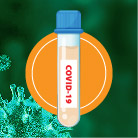≡

Too young for this: Facing Colorectal Cancer at a much younger age

Dr Clara Wu
| Director, Emergency Medicine Centre, and Consultant in Emergency Medicine |
Seasonal Illness
Preventing Avian Influenza
Recently there has been one more case of H7N9 Avian Influenza in Hong Kong, making the total number of confirmed cases to be 9 so far. Among these, 2 patients have died, arousing public concern.
According to the information on the Centre for Health Protection, many of the H7N9 patients have been in touch with birds and poultry before. Avian influenza is caused by those influenza viruses that mainly affect birds and poultry, such as chickens or ducks. Humans get infected mainly by close contacts with infected birds and poultry (alive or dead) or their faeces. As avian influenza is a novel influenza, whose virus does not commonly infect humans, there is little or no immune protection against it in the human population.
The incubation period for avian influenza is around 7 to 10 days. Common symptoms of avian influenza include flu-like symptoms (e.g. fever, cough, sore throat, muscle aches) or severe respiratory illness (e.g. chest infection), or may be eye infection (conjunctivitis). The more virulent forms can result in respiratory failure, multi-organ failure and even death.
Though human-to-human transmission of avian influenza is inefficient, however, if an avian influenza virus acquired the capacity to spread easily from person to person, either through adaptation or acquisition of certain genes from human viruses, an influenza pandemic can occur. Outbreaks of avian influenza in poultry including H5N1, H7N9 and H9N2 have recently been reported in some Asian areas, and other cases of H10N8 and H6N1 have been reported in mainland China and Taiwan in 2013 for the first time.
Patients should get adequate rest and drink plenty of fluids. People with flu-like symptoms should seek medical advice, especially those with weakened body resistance, or if their condition deteriorates, e.g. persistent high fever or shortness of breath.
Avian influenza A (including H5N1, H7N9 and H10N8 viruses) are generally more severe than common flu, and most patients require hospital care. Some anti-viral drugs may be effective in treating the condition. Unless there is bacterial infection, antibiotics should not be used. Aspirin should not be taken by children to avoid the risk of inducing Reye's Syndrome.
High risk people include those in close contact with poultry, the elderly, children and people with chronic illness. These people have a higher risk of developing complications such as bronchitis and chest infection.
To prevent avian influenza, you should try not to touch chickens or their droppings, and do not blow at their bottoms. Wash eggs with household detergent if they are soiled with faecal matter or stained with dirt. Washed eggs should be consumed immediately. Observe food hygiene when cooking chickens and eggs. Always wash the hands thoroughly with liquid soap and water after handling chickens and eggs.








